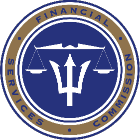
Overview
Advances in financial technology (FinTech) have led to the emergence of products and services that have the potential to make conducting financial transactions more efficient and less expensive. However, the rapid evolution of FinTech also means that these innovations might not be captured under current financial sector legislation that exists to protect Barbadians.
As a result, the Central Bank of Barbados (CBB) and the Financial Services Commission (FSC), the nation’s two financial regulators, have established a Regulatory Sandbox where entities can do live testing of their products and services.
The purpose of this Regulatory Sandbox is two-fold. For businesses, it allows them to test the feasibility of their innovations in a real-world, but controlled, environment. For the Regulator, it provides an opportunity to better understand the nature of the product or service and by extension to determine whether the existing regulatory framework is sufficient, or if a new type of legislation is necessary.
The ultimate aim is to ensure that innovative technologies are not stymied, while at the same time protecting Barbadians and the financial system.
Glossary of Terms
Regulatory Sandbox
A regulatory sandbox is a framework under which businesses can live test their innovative products and services on a small scale, while being closely monitored by regulators. Sandboxes give businesses an idea of how their products or services will perform on the market, while allowing regulators to determine if and how these products or services should be regulated.
Financial Technology or FinTech relates to the use of modern technology to provide financial services.
A team comprising representatives from the Central Bank of Barbados and the Financial Services Commission, as well as an observer from the Ministry of Finance, Economic Affairs and Innovation. The panel may also draw on the expertise of subject matter experts from outside these organisations.
An entity that is responsible for the regulation of financial institutions and/or monitors the financial institutions to ensure they are complying with legislation and regulatory guidelines.
Real as opposed to simulated. The businesses in the Regulatory Sandbox will be conducting business with real customers, albeit in a closely monitored environment.
Sandbox Documentation
General Sandbox FAQs
A Regulatory Sandbox is a controlled environment where businesses can test their innovative financial products, services, business models, and delivery mechanisms, in a live environment while being closely monitored by regulators.
Businesses offer their innovative products and services to the public on a small scale, while being closely monitored by Regulators. Regulators monitor the activity and determine if the product or service should be regulated.
The Regulatory Sandbox is intended for businesses testing technology-based financial products and services.
A Regulatory Sandbox allows regulators to gain a better understanding of the product or service and to determine what, if any, regulation is necessary to protect consumers.
For businesses, a sandbox presents an opportunity to test the viability of their product, service, etc. on a small scale, and allows them to detect and address any issues before the product or service is offered on a wider scale.
FinTech innovations can differ significantly from traditional financial services, so there can be some uncertainty on how they should be regulated. By allowing businesses to test their products and services within the controlled live environment of a Regulatory Sandbox, the CBB and FSC, as Barbados’ financial regulators, will be able to determine whether existing regulations are sufficient to protect consumers, or if new legislation is needed.
The duration will vary based on the nature of the product or service being offered by the business.
Sandbox FAQs for Businesses
Being in the sandbox allows businesses to discover and address any regulatory concerns early in the life of the product or service, thereby avoiding the possibility of major regulatory issues being discovered after the product or service has been offered on a wider scale.
To be eligible to participate in the Regulatory Sandbox, the product or service being offered by the business:
- Represents a genuine financial innovation;
- Uses technologies that are as yet unproven and whose failure would give rise to risks to consumers or financial stability;
- As a result of new technologies or practices, creates ambiguity as to the appropriate regulatory regime for the product or service;
- Has been subject to adequate and appropriate functionality and risk assessments.
Yes. Businesses hoping to participate in the Regulatory Sandbox are required to pay the applicable fees, which will be used to cover regulatory and administrative costs.
The application process includes two major steps. The business must:
- Complete an application form and Confidential Statements for each shareholder, prospective shareholder, director and executive officer and submit to regsandbox@centralbank.org.bb or regsandbox@fsc.gov.bb as applicable.
- Pay a fee, which will be used to cover the associated regulatory and administrative costs.
The duration of a business’ participation in the Regulatory Sandbox will be determined by a Regulatory Review Panel (RRP) based on the nature and complexity of the product or service.
Based on issues or concerns that emerge during testing, the RRP may extend the time beyond what was originally anticipated. A business can also request to have the time extended.
Once a business has successfully completed testing in the sandbox, the RRP will issue a report that outlines how the product or service performed during its participation in the Regulatory Sandbox.
- Any new regulatory issues that were identified during testing and whether satisfactorily addressed.
- Where the RRP has determined that the product or service falls within the scope of existing legislation, the entity should make a formal application for a licence under that legislation.
- Where a product or service does not fall within the scope of existing legislation, and should be regulated, the CBB and/or FSC will be responsible for ensuring that appropriate regulatory framework is developed.
- A detailed explanation, where the RRP has recommended that the product or service should not be licensed.



